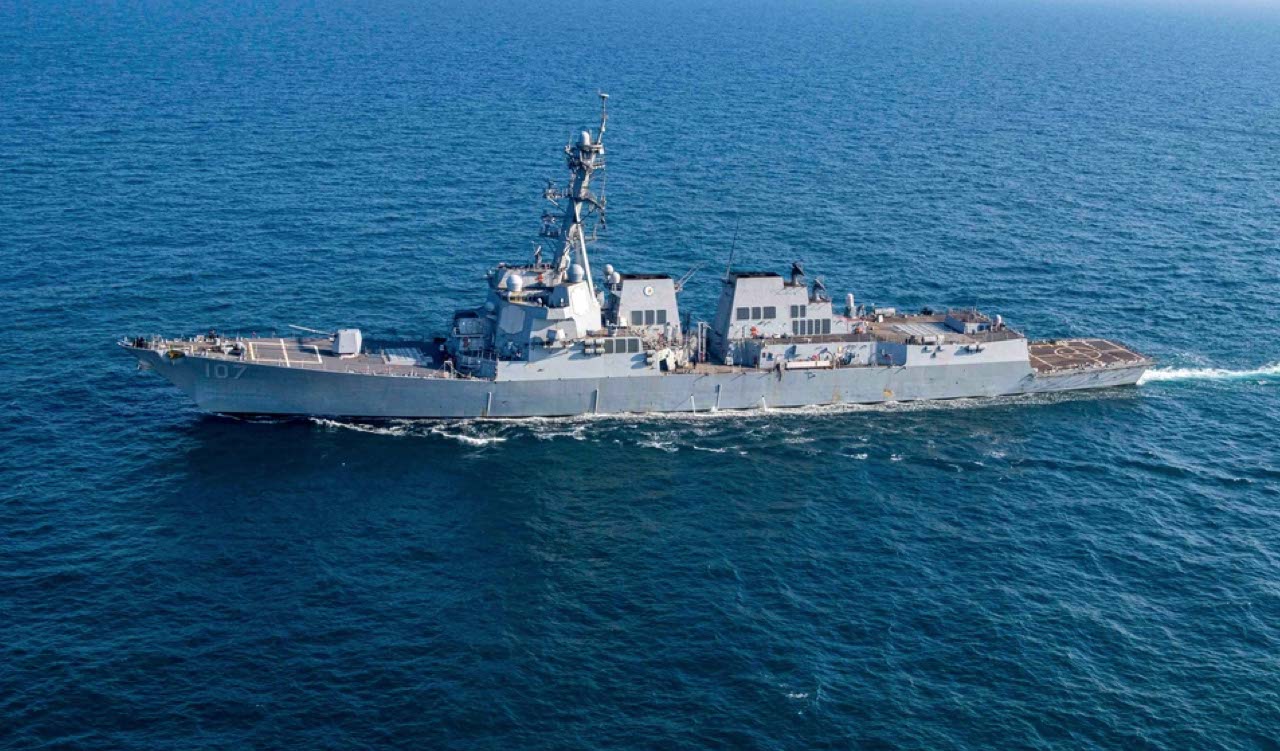White House: Iran is ‘Deeply involved’ in Houthi Attacks on Red Sea Shipping
On Friday, the White House moved to take a tougher position—at least verbally—in terms of the malicious activity it is prepared to attribute to Iran.

WASHINGTON DC, United States (Kurdistan 24) – On Friday, the Biden administration stated more clearly than it has yet done that Iran is an active facilitator of the attacks that Yemen’s Houthis have been carrying out against international shipping in the Red Sea region.
The Red Sea is a key shipping lane. In combination with the Suez Canal, it carries goods between North America and Europe, on the one hand, and Asia on the other. Some 12% of the world’s shipping passes through the Red Sea, as does 30% of its container shipping.
The Houthi attacks are part of a larger campaign, directed by Iran, in which its proxies, including militias in Iraq and Syria, are exploiting the war in Gaza to attack the interests of the U.S. and its allies in the broader Middle East.
As John Bolton, who was U.S. ambassador to the United Nations under George W. Bush and National Security Council Advisor under Donald Trump, wrote in The Washington Post earlier this week, “Only the credulous doubt that Iran’s regional surrogates are acting in concert in the current crisis.”
Read More: US Imposes New Sanctions on Support for Iran’s Drone Program
Yet the Biden administration, generally, has acted as if it refrained from describing Iran’s role in these attacks, Tehran would reciprocate the courtesy and desist.
Read More: U.S. Cites Iran, as Militias Attack Numerous Sites in the Kurdistan Region, Iraq, and Syria
Unsurprisingly, that has not worked. Major shipping companies have announced they will not be transiting through the Red Sea, until the security situation improves. Instead, they will take the much longer, and more expensive, route around Africa.
This is so, although the U.S. Secretary of Defense announced earlier this week that Washington is forming an international coalition to protect shipping in the area.
Read More: US Sec Def Announces Coalition to Defend Shipping Against Houthi Attacks
Shipping companies, however, seem to be taking a wait-and-see attitude. As the American Journal of Transportation reported on Friday, “The crisis in the Red Sea region has sent the cost of ocean freight shipping spiraling as the market continues to react to vessels being forced to avoid the Suez Canal” and travel, instead, the long route around the Cape of Good Horn.
It should also be noted that key Arab allies of Washington—Egypt and Jordan—are seriously affected. Egypt relies heavily on revenues from the Suez Canal, while Jordan’s only access to the sea—at the port of Aqaba—lies on the northern tip of the Red Sea. Until normal shipping resumes, Jordan is essentially land-locked.
A key goal of the Biden administration has been to prevent the conflict in Gaza from spilling over into other areas of the Middle East. But as regards shipping through the Red Sea and Suez Canal, it has failed.
Iran’s Support for the Houthis: Arms and Intelligence
Thus, on Friday, the White House moved to take a tougher position—at least verbally—in terms of the malicious activity it is prepared to attribute to Iran.
As National Security Council Spokesperson Adrienne Watson, citing newly declassified intelligence, told the media, “We know that Iran was deeply involved in planning the operations against commercial vessels in the Red Sea.”
She explained that Iran was providing the Houthis both weapons and the intelligence with which to use those weapons to target international shipping.
“U.S. visual analysis found nearly identical features between Iran’s KAS-04 drones and the unmanned vehicles fired by the Houthis,” she stated.
“Moreover, Iranian-provided tactical intelligence has been critical in enabling Houthi targeting of maritime vessels since the group commenced attacks in November.”
Similarly, a senior U.S. military official told CNN that without Iranian support, “the Houthis would struggle to effectively track and strike commercial vehicles.”
The “very significant breadth of attacks” on international shipping has risen to a level not seen in at least “two generations,” the official explained, while it represents a “large change in the security environment than even what it was two months ago.”